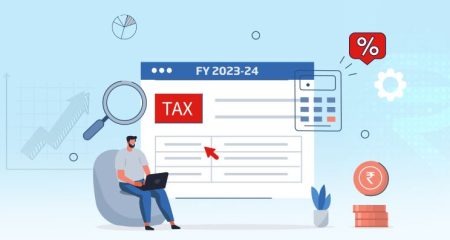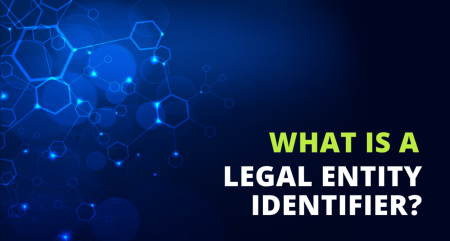Loans without collateral require you to pledge any assets as security in order to gain approval, making them ideal for those without assets to pledge who need cash quickly.
You can compare loan offers before accepting one to ensure the amount meets both your financial needs and fits within your budget, but if you’re looking for help funding your business, I suggest learning the information below and asking a financial advisor for further advice.
Types of Business Loan
Every business requires capital in order to operate smoothly. Unfortunately, it can be challenging for small and medium-sized enterprises (SMEs) to raise this capital on their own, which is why so many entrepreneurs seek external sources of funding in order to meet their financing needs.
Some offer company equity as collateral while others prefer lending types which offer flexible credit products designed specifically for business use that can be applied towards operations or growth purposes.
The types of loan vary based on the type of company they’re suitable for as well as amount and duration. Many lenders require that borrowers disclose where the funds will be used so they can assess whether these expenses align with business strategies and will bring expected returns. They must only be used for legitimate business expenses rather than personal use as this would breach their agreement with their lender.
There are various kinds of loan, each tailored for specific purposes and offering flexible repayment terms. Working capital loans provide short-term funding solutions for daily or approaching expenses and can be obtained both online and via traditional banks.
Other ones available to entrepreneurs include term loans, which offer lump sums that you pay back in fixed monthly or weekly installments over an extended period. Banks often offer such loans that last ten years or longer. You could find a business line of credit similar to credit cards that provide revolving funding; secured or unsecured; it’s usually provided through online lenders.
Unsecured Business Loans

Unsecured financing offers small business owners a viable source of capital to meet growth or cash flow issues, but it’s essential that they carefully consider all its pros and cons before making a decision about whether it fits.
An attractive aspect of unsecured business loans is their lack of collateral requirements. When seeking secured financing, lenders typically request valuable assets like real estate or vehicles as security for the loan; although this approach might work in certain instances, seizing such valuables might not always be possible in case a business defaults on payments – making unsecured financing the superior choice for small businesses without many valuable assets to offer as security.
Unsecured business loans typically offer more advantageous terms than secured loans, such as fixed interest rates and repayment periods that help businesses budget more easily for financing expenses and manage debt more effectively.
But lenders recognize the greater risks involved with unsecured business loans than secured financing options, so to reduce them they typically charge higher interest rates on these types of loans and it can be more difficult for new business owners or those with lower business credit scores to qualify for them.
In order to secure an unsecured business loan, it’s necessary to have both an excellent business credit score and annual revenue. Lenders will also consider how long your business has been operating to determine risk when providing financing – depending on which lender it’s likely you can qualify in as little as 24 hours after applying!

Unsecured Personal Loans
An unsecured personal loan is a lump sum of money you can use for anything, from paying off debts and home improvements, to financing vacations. These ones differ from mortgages and auto loans which encumber property such as your house or car as collateral against their repayment, while an unsecured personal loan only requires your promise of repayment; no collateral required!
Before approving an unsecured personal loan application, most lenders conduct a careful assessment of your credit history, credit scores, income and current debt levels to assess whether or not you can afford the monthly payments on it.
You may also be required to sign a contract agreeing on specific interest rate and repayment terms – if payments are missed they’ll likely become delinquent and you could face high interest rates, fees and even negative repercussions on your credit report.
Banks, credit unions, online lenders and peer-to-peer lenders all offer personal loans at competitive rates. While the exact requirements can vary between lenders, qualifying typically requires having both an excellent credit score and steady income to show proof that you can repay it on time. Some may offer the ability to prequalify without impacting your score so that you can gain an idea of which terms may be available to you.
Although they don’t come with guarantees, they’re often easier to qualify for than other forms of credit due to not tying up collateral. But be wary: missing payments could damage your credit and make qualifying for other forms of financing harder in the future.
As lenders assume greater risk with unsecured ones, unsecured personal loans often carry higher interest rates compared to their secured counterparts. If your credit is poor, an unsecured personal loan might be your only solution – however if you work on improving it through responsible behavior such as timely credit card payments and other steps you could secure an unsecured personal loan with lower rates!
Unsecured Mortgages
Unsecured debt refers to any type of financing, from home mortgages and car loans to credit cards, personal loans and business lines of credit. One main distinction between secured and unsecured debt is collateral – anything material with financial value that you pledge as protection in case you default – for instance your house, car or cash deposit are examples of collateral you could pledge as security against your loan agreement in case it goes bad. Secured loans protect lenders against significant loss while making qualifying easier than their unprotected counterparts.
Secured debt may incur higher interest rates as lenders take on greater risk with secured loans, so it is important that you carefully consider both forms of debt to determine which will work best for you.
Secured loans come in many forms, from mortgages and home equity toauto and vehicle loans. Mortgages and home equity use your house as collateral; should you fail to meet the terms of your agreement, the lender can seize and sell it as an attempt at recovering their losses. Other forms of secured debt include vehicle loans using collateral such as your car as well as secured credit cards that require cash deposits as collateral and act as a limit.
Unsecured debt can be an effective tool for consolidating debt or financing major purchases, but it’s important to be aware of its risks before applying. With good credit, qualifying for an unsecured loan usually does not require placing assets as security.
However, lenders typically still perform a thorough credit check prior to accepting your application for approval. Before applying for an unsecured loan consider your creditworthiness, debt payment history and any other factors before making your decision.
Unsecured Commercial Loans
An unsecured commercial loan is financing that doesn’t require you to pledge assets as collateral; rather, lenders assess whether to approve funding based on your creditworthiness instead. This type of funding can often be more easily available for small businesses as lenders view the risk as less substantial than secured loans.
Credit cards and auto/home equity are two common examples of unsecured financing; both offer credit limits based on your financial institution’s assessment of your creditworthiness (source: www.forbrukslån.no/) or other info. Home and auto equity also qualify as unsecured options since no collateral needs to be pledged when taking out these ones.
Payday and student loans also fall into this category of unsecured funding; although not intended specifically for business use they could prove invaluable in situations where unexpected expenses require immediate payment. However, sometimes it can be difficult to obtain a secured loan due to limited business assets or poor credit.
When this occurs, an unscrupulous player in the finance industry known as a “loan shark” could provide very unfavorable terms such as high interest rates (referred to in movies as the “vig”) and shorter repayment periods – all which pose an increased risk to your business. You should avoid taking out loans from such sources as they can quickly become debt traps that put it at greater risk than it otherwise would.
An applicant with strong credit and an excellent track record might find their loan approved based solely on creditworthiness, however most lenders require them to sign a personal guarantee and become personally responsible for repayment in case of default; should this occur, assets could have to be pledged as security to cover debt.
Traditional banks and credit unions are an effective source for an unsecured business loan, typically offering slower processing times and stricter lending requirements, though some borrowers may find loans with more favorable terms from these sources. Online lenders that specialize in offering such loans for businesses may provide faster application processes as well as accepting more risk than their traditional counterparts would.














